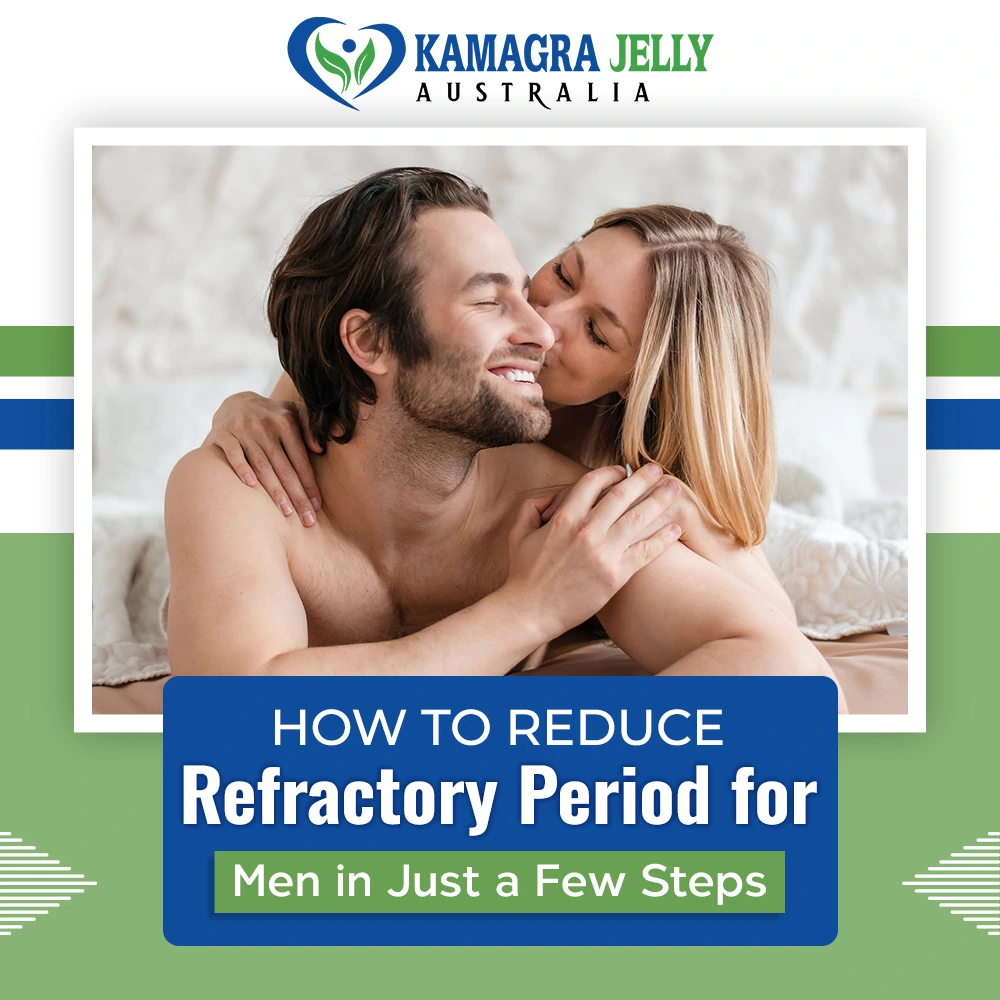
What is Refractory Period Really?
Before we explore how to reduce refractory period, it’s important to understand what this natural phase means. The refractory period is the recovery time a man gests after ejaculation, during which sexual thrill temporarily drops and achieving another construction becomes delicate or insoluble. This phase varies significantly from person to person and is influenced by age, hormones, life, internal state, and overall health. youngish men frequently recover briskly, while aged men may bear longer. Knowing how the body works is the first step towards managing this natural cycle more effectively.
Why the Refractory Period Exists in the First Place

The body enters the refractory period due to hormonal changes, particularly a swell in prolactin after orgasm. This hormone reduces sexual desire and cools down the nervous system. At the same time, dopamine levels drop, and the parasympathetic system takes over, performing in a lowered state of arousal. For numerous men, the thing isn’t to exclude this phase because it can not be removed, but to reduce refractory period duration so they can return to closeness sooner. Understanding the internal triggers helps in choosing the right ways to dock recovery time.
Optimizing Hormone Levels for Faster Recovery
Hormones play a major part in determining how quickly a man can bounce back. Low testosterone, high prolactin, or imbalanced cortisol can increase the length of your refractory period. To Reduce Refractory Period, concentrate on diurnal habits that boost testosterone naturally strength training, sun exposure for Vitamin D, healthy fats like avocados and nuts, and good-quality sleep. Reducing habitual stress is inversely pivotal because stress hormones interfere with sexual response and slow recovery. When your hormones are balanced, your body is better equipped for quicker sexual performance recovery.
Read Best Blog:- Accurate Facts About PCOS Discharge
Improving Blood Circulation for Better Sexual Response

Proper blood Inflow is essential for achieving and maintaining constructions, and it also helps speed up the post-ejaculation recovery phase. Men looking to reduce refractory period should prioritize cardiovascular health. Simple conditioning like brisk walking, cycling, or swimming for 20 – 30 minutes a day can dramatically ameliorate rotation. Foods like beetroot, spinach, garlic, and pomegranate help dilate blood vessels naturally. Healthy blood inflow ensures that capillaries in the pelvic area admit oxygen and nutrients briskly, helping the body restore responsiveness in lower time.
Building Consistent Exercise Habits for Long-Term Improvement
Regular exercise goes beyond fitness; it directly impacts sexual stamina and recovery. Strength training increases testosterone, while cardio improves rotation. To reduce refractory period sustainably, concentrate on a balanced routine involving weight lifting three times a week and cardio sessions on alternate days. Kegel exercises are particularly salutary because they strengthen the pelvic bottom muscles responsible for the construction and control. A stronger pelvic region helps men maintain firmer constructions and recover quickly after interjection. thickness is the key; indeed, 20 twinkles a day adds up to significant enhancement.
Managing Stress Levels to Support Sexual Health
High stress triggers cortisol product, which suppresses testosterone and prolongs the refractory phase. Men who aim to reduce refractory period frequently underrate the impact of stress and anxiety on their sexual performance. Incorporate stress-reducing ways similar as deep breathing, awareness contemplation, light stretching, or harkening to calming music. Indeed, short relaxation sessions throughout the day can reset the nervous system and ameliorate hormonal balance. A calmer mind translates into better thrill control, enhanced libido, and hastily recovery after climax.
Enhancing Sleep Quality for Faster Sexual Recovery

Sleep is one of the most important yet overlooked factors in sexual health. The highest testosterone product happens during deep sleep, meaning poor sleep leads to lower sexual stamina and longer recovery time. To effectively reduce refractory period, end for 7 – 9 hours of continued sleep each night. Avoid defenses an hour before bed, maintain a regular sleep schedule, and keep your room cool and dark. Acceptable sleep improves body form, boosts libido, raises testosterone levels, and helps men recapture their construction capability more quickly after interruption.
Considering Natural Supplements That Support Sexual Vitality
Some natural supplements can help men reduce refractory period and ameliorate overall sexual performance. L- arginine increases nitric oxide levels, perfecting blood flow. Korean red ginseng enhances thrill and stamina. Ashwagandha reduces stress and supports testosterone levels. Zinc and magnesium are essential minerals for hormone balance. While these supplements are generally safe, it’s judicious to consult a healthcare professional before starting them, especially if you take drugs. Supplements aren’t magic, but when combined with a healthy life, they enhance recovery and performance naturally.
Using Smart Bedroom Techniques to Delay Fatigue
The way you approach sexual activity also influences your recovery speed. To reduce refractory period, incorporate paced stimulation instead of rushing toward climax. Engaging in longer foreplay can elevate arousal levels, making it easier to regain an erection afterward. Edging techniques, where you get close to orgasm but pause, can increase endurance and reduce sensitivity. After ejaculation, avoid stimulating the penis immediately, as the tissue needs a short rest. Instead, relax for a minute or two before gentle stimulation to help recovery begin naturally.


Comments (0)
Leave A Comment